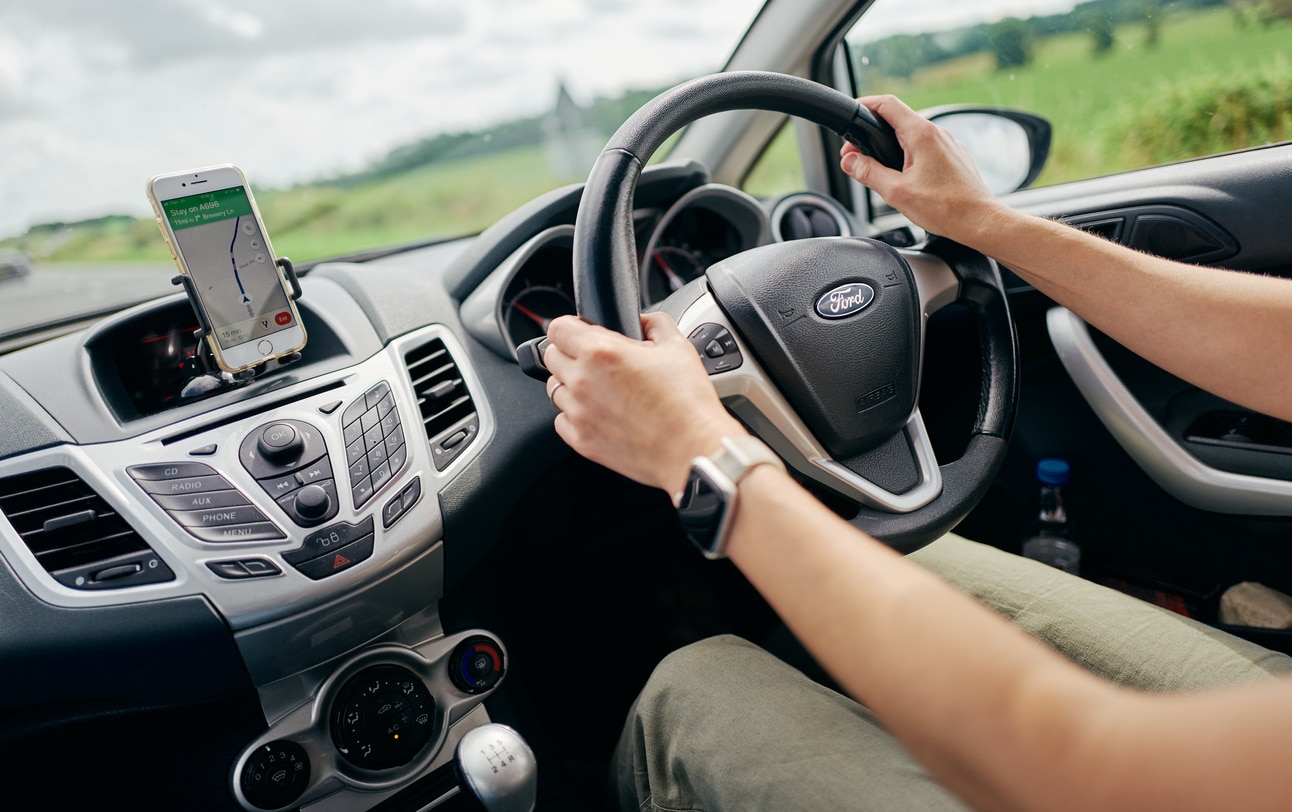Driving is second nature to most motorists. But no matter how experienced you are, certain things can affect the way you drive – and we’re not just talking drink and drugs.
Several day-to-day habits can have a negative impact behind the wheel, increasing the likelihood of an accident or just making your daily drive that much more uncomfortable. And what’s worse is that we’re often unaware of the effect these everyday actions can have, meaning you could be putting yourself and others at risk without knowing it.
We’ve looked at 8 things which could be affecting the way you drive.
1. Taking Certain Medications
This is really common. Lots of people drive while taking daily medications, unaware that these might affect their reaction time and alertness. Chief among the meds to watch for when driving are one-a-day antihistamines – particularly those that aren’t labelled as non-drowsy.
When taking over-the-counter medications like antihistamines and painkillers, always check the label to make sure they don’t warn against driving after you’ve taken them. Many commonplace medications warn against driving and operating heavy machinery, so it’s something to be mindful of.
2. Wearing the Wrong Shoes
If you’ve ever driven in a chunky pair of boots, you know how much this can affect the way you drive. Wearing the right footwear for driving is a lot more important than people realise, and some shoes could actually increase the likelihood of an accident.
Sandals and flip flops are a no-no for obvious reasons, but you should also avoid heavy-soled shoes and boots, as they don’t give you much pedal feel. Be careful of shoes with long laces too; there’s a reason why classic driving shoes are slip-on moccasins with a thin but grippy sole.

3. Listening to Loud Music
Distractions take many forms while driving, and listening to loud music is up there as the biggest culprit. Playing loud music affects your concentration and alertness, and could mean you miss warning signs like emergency sirens and other drivers’ horns.
Not only that, but listening to certain genres of music at high volume affects the way you drive, making it more likely that you’ll speed or drive erratically. Studies show that people are more likely to speed while listening to songs with a high BPM, so you may want to stick to Classic FM or Radio 4 on your next road trip.
4. Controlling In-Car Tech
While everyone knows using a phone at the wheel is a big no-no, there are lots of other forms of in-car technology which can be just as distracting to use at the wheel. If you have an LCD infotainment system, for example, using this while driving could easily cause an accident – so it’s surprising that most new cars have this type of in-built technology.
And it isn’t just infotainment systems that can affect how you drive; anything that distracts you from the road poses a risk, whether that’s setting up cruise control, checking the odometer or adjusting the vents. Be mindful when adjusting controls at the wheel, and be sure there are no upcoming hazards or you are stationary before you do.
5. Having a Dirty or Cluttered Car
Driving an unclean and cluttered car isn’t a crime, but the police could pull you over if they have reason to believe the state of your car poses a risk to yourself and other road users. Outside and in, your car should be clean and tidy enough so as your ability to drive safely isn’t impaired, including things like having a clear windscreen and clean licence plate, being able to see out of the back window and making sure there aren’t piles of litter in the footwells.
So, while a little mess isn’t going to affect how you drive, you should make an effort to keep your car in a semi-respectable state. Not only will maintaining a clean, tidy car help with safety, it’ll also mean you’re less stressed at the wheel.
6. Wearing Glasses that Aren’t the Correct Prescription
When was the last time you had your eyes checked? If you can’t remember, it’s maybe something you should look into. Drivers are required to have good distance vision while driving, hence why it’s part of the practical driving test, so if your glasses’ prescription is out of date you have a responsibility to put it right.
At any age our vision can change rapidly, so if you suddenly find yourself unable to read registration plates at a reasonable distance it’s time to book in at your optician.
7. Day-to-Day Stress
For many of us driving is so commonplace that it’s easy to think of other things at the wheel. But if you’re feeling stressed or anxious, this could easily affect how you drive.
It’s easy to take driving for granted, but if your head’s not in it that’s when mistakes and accidents can happen. Stress can have a huge influence on our concentration and focus, so it’s never good to drive when you have a lot on your plate. Try to see driving as an escape from the day-to-day – a time when you can switch off and do something mundane, without worrying about anything else.
8. Driving While Tired
We’ve all seen those signs on the motorway urging tired drivers to take a break, but we’re confident most people take no notice of them. With places to be and people to see, most people don’t have time to pull over and take a break – but driving tired will almost certainly affect the way you drive.
Did you know that 1 in 5 accidents on UK roads is caused by tiredness? Statistics show that driving tired is ultimately the same as driving drunk, with a similar effect on alertness and reaction time. So the next time you feel drowsy at the wheel, consider pulling over for a cup of coffee and some fresh air.
Enjoyed this guide? Check out the Prestone blog for more motoring advice and features. If you’d like to learn about our high-performance engine maintenance fluids, visit the Prestone homepage.


